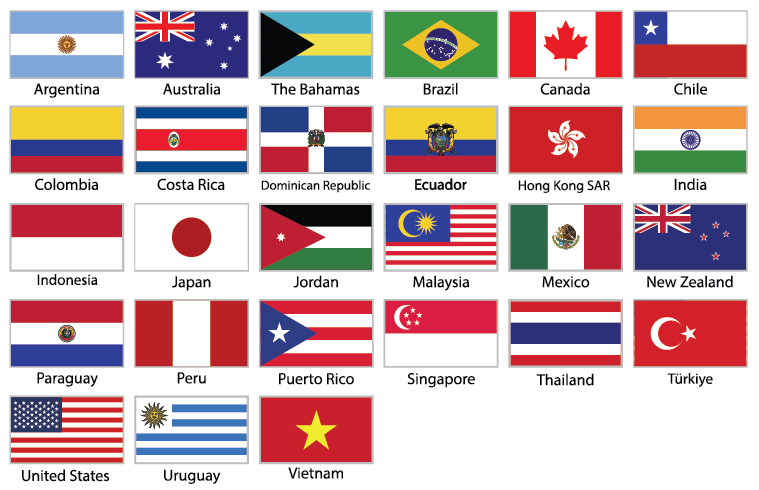By Alison Ashton Parade@ContentKitchn, November 14, 2016
Let’s talk turkey — Thanksgiving turkey, that is. As the outgoing POTUS prepares to pardon his last TOTUS (turkey of the United States) and the rest of us gear up for one of the biggest grocery-shopping safaris of the year, here are some tips for what to look for in your bird. According to a recent survey by Lake Research Partners, 77% of American shoppers are concerned about the welfare of farm animals.
Try this Texas-Style Peach-Glazed Turkey>>
So what does that mean when it comes to buying your holiday turkey? The ASPCA offers a guide to the often-confusing labels on poultry, including turkey. Some claims are more meaningful than others:
- Cage Free: In the U.S. turkeys are never raised in cages, so this is a useless claim.
- Hormone Free: also meaningless. The USDA prohibits the use of hormones on all poultry.
- Humanely Raised/Humanely Handled: a vague, unverified term, unless it’s backed up by a certified, audited labeling program (see below).
- Natural/Naturally Raised/All Natural: You’ll see this plastered on all kinds of products, but it doesn’t mean much. According to the USDA, products must be minimally processed and contain no artificial ingredients or added colorings. But the agency doesn’t define “artificial,” notes the ASPCA, and turkeys raised in conventional conditions and fed regular doses of antibiotics can still be labeled “natural.”
- Young: Although wild turkeys can live for years, modern turkeys are bred to grow to slaughter weight in just weeks. Turkeys bred for less-intensive growth rates may suffer less from lameness and can have better quality of life, according to the ASPCA.
The ASPCA gives a thumbs up to these three voluntary labeling programs:
 Certified Humane: This program was created by Humane Farm Animal Care, and compliance is verified by auditors. Cage confinement, hormones and preventative use of antibiotics are prohibited. Outdoor access isn’t required for turkeys, but adequate space, enrichment (such as perches), minimum continuous dark hours and bedding are required for indoor environments. Standards extend to breeding animals, transport and slaughter.
Certified Humane: This program was created by Humane Farm Animal Care, and compliance is verified by auditors. Cage confinement, hormones and preventative use of antibiotics are prohibited. Outdoor access isn’t required for turkeys, but adequate space, enrichment (such as perches), minimum continuous dark hours and bedding are required for indoor environments. Standards extend to breeding animals, transport and slaughter.
Global Animal Partnership (GAP): Whole Foods shoppers may be familiar with this program — the grocery retailer was the first to partner with GAP on this six “step” rating program for animals raised for meat. For turkeys Step 2 represents a significant improvement over conventional standards and provides for an enriched indoor environment with minimum space and dark hours. Each additional step improves quantity and quality of space, adds enrichment, requires better, more balanced breeds and other welfare improvements. Hormones and preventative antibiotics are prohibited at all steps. Standards extend to transport but not breeding animals or slaughter. Compliance is verified by auditors.
Animal Welfare Approved (AWA): Consumer Reports has lauded AWA for setting the highest standard for livestock welfare. AWA-certified turkeys have continuous access to pasture or range. Cage confinement, hormones and preventative antibiotics are prohibited. Standards extend to breeding animals, transport and slaughter. And, of course, compliance is verified by auditors.

Thanksgiving Turkey Talk: What Do All Those Labels Mean?
Posted: November 16, 2016 by HFAC
By Alison Ashton Parade@ContentKitchn, November 14, 2016
Try this Texas-Style Peach-Glazed Turkey>>
So what does that mean when it comes to buying your holiday turkey? The ASPCA offers a guide to the often-confusing labels on poultry, including turkey. Some claims are more meaningful than others:
The ASPCA gives a thumbs up to these three voluntary labeling programs:
Global Animal Partnership (GAP): Whole Foods shoppers may be familiar with this program — the grocery retailer was the first to partner with GAP on this six “step” rating program for animals raised for meat. For turkeys Step 2 represents a significant improvement over conventional standards and provides for an enriched indoor environment with minimum space and dark hours. Each additional step improves quantity and quality of space, adds enrichment, requires better, more balanced breeds and other welfare improvements. Hormones and preventative antibiotics are prohibited at all steps. Standards extend to transport but not breeding animals or slaughter. Compliance is verified by auditors.
Animal Welfare Approved (AWA): Consumer Reports has lauded AWA for setting the highest standard for livestock welfare. AWA-certified turkeys have continuous access to pasture or range. Cage confinement, hormones and preventative antibiotics are prohibited. Standards extend to breeding animals, transport and slaughter. And, of course, compliance is verified by auditors.
Category: news